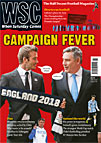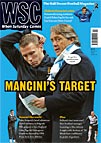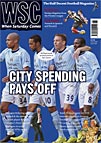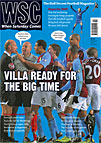 Joel Richards reports on the continuing difficulties in controlling Argentinian groups, both inside and outside the country
Joel Richards reports on the continuing difficulties in controlling Argentinian groups, both inside and outside the country
“I paid up,” shrugged Oscar Ruggeri. “I paid up loads of times,” admitted the World Cup winner on national television. As other guests on set were dismayed at his honesty, Ruggeri calmly replied. “What do you want me to do, lie? I had to pay up, but I didn’t give any money in 1986. I had just moved from Boca to River and they burnt my house down. What else could they do to me?”



